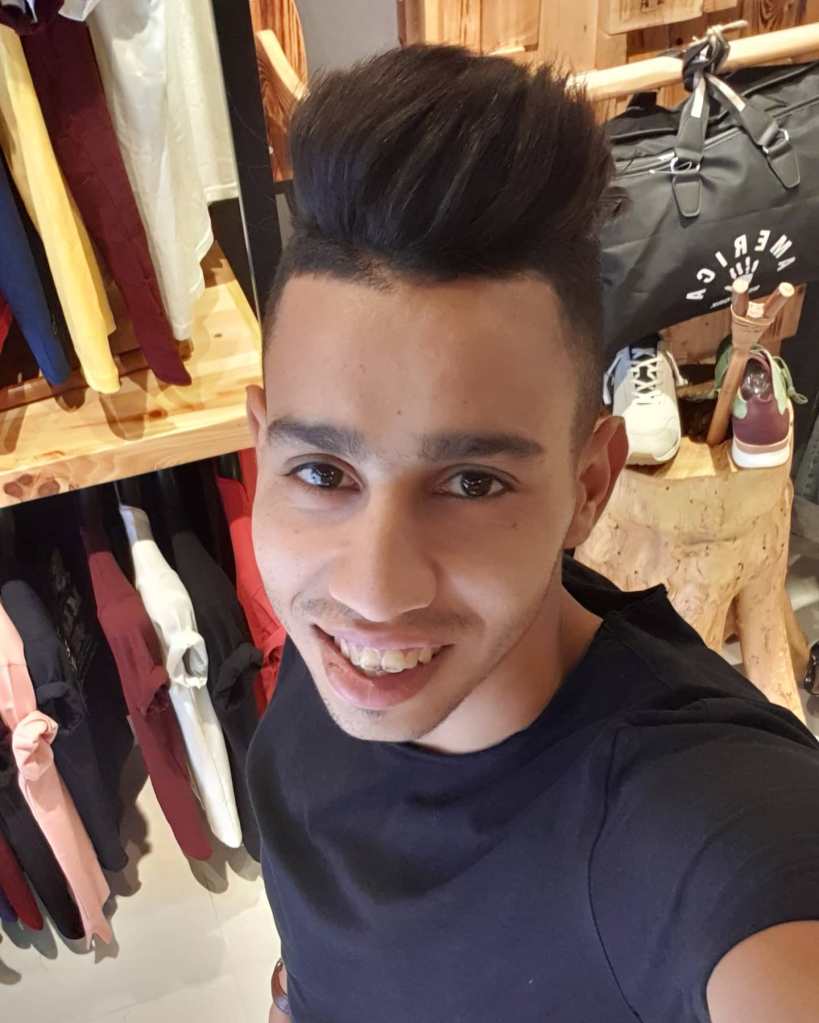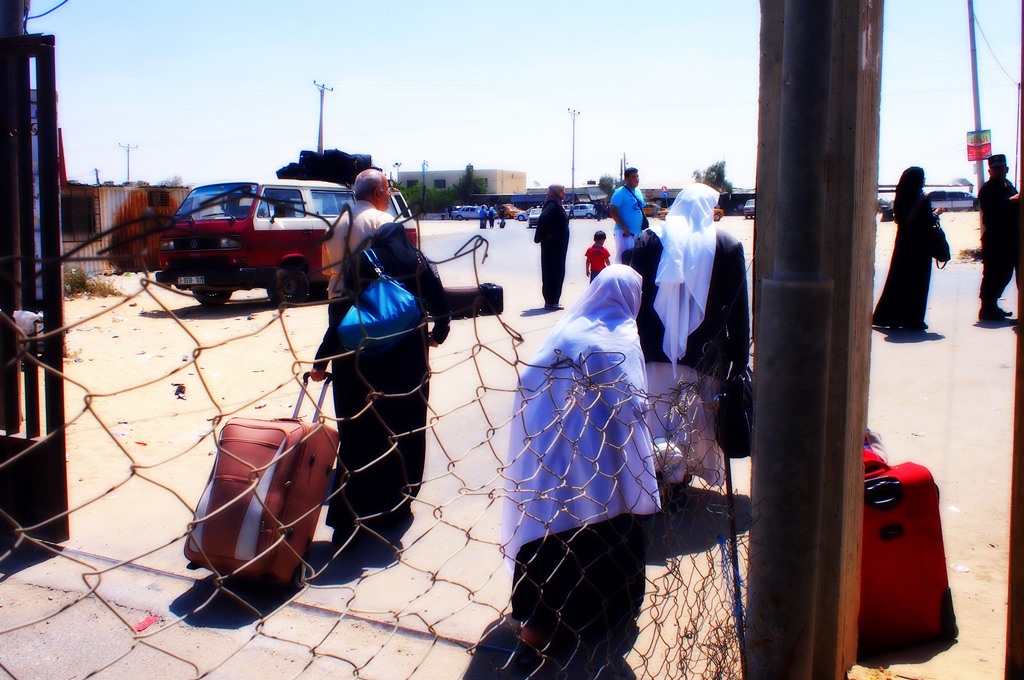Gaza Suicides Amid a Gradual Genocide by Israel

A disturbing trend of suicides is taking place amongst young people in the world’s largest open-air prison, the Gaza Strip due to a suffocating military and economic blockade. In less than 24 hours, 3 men in their early 20s, Ayman Al-Ghoul, Sulaiman Al-Ajjouri and Ibrahim Yasin took their lives. Meanwhile, an 18-year-old girl has attempted to take her life by swallowing huge amount of pills but survived.
I follow these local news in Gaza with great worry over the lives and potential of these people who symbolise the future of our homeland but whose horizons is extremely limited against a backdrop of a brutal process of dehumanisation that goes back to 1948 Nakba when a forth of dispossessed Palestinians sought refuge in the Gaza Strip and their hopes to return has been consistently repressed by Israel.

I especially worry over my youngest brother Mohammed (24) who’s raising a beautiful baby with his wife Asma amid extreme life precarities. Despite being very skilled, he’s jobless, and survives by whatever job opportunity that comes his way, even if it’s underpaid. He had many days when in one day he worked as a barber and a salesman at some retail shop, and an electrician. But most days, there are no jobs, forcing him to be dependent on my mum’s nurse salary which helps the family survive while my father is retired and his only source of income which he gets as a long-serving former political prisoner in Israeli jails, is cut amid financial crisis facing the Palestinian Authority. The sad thing is that my family is doing better than the majority of families for whom a loaf of bread is a struggle.
These suicides are signalling hopelessness due to accumulative violence coming from all directions that left them nothing to hold onto. And while all are undergoing ongoing trauma under siege and military attacks, mental health support is considered luxury, and is not available for the overwhelming majority.
In 2012, when the UN warned that Gaza would be uninhabitable by 2020, they undermined the dehumanising reality that haunted the population for decades of oppression under Israeli apartheid. According to a recent report by the UN, 3,601 Palestinians were killed by Israeli forces and over 100,000 injured during the past decade across the occupied Palestinian territories. Of these, 87 % were killed in Gaza, mostly during the 2012 and 2014 Israeli onslaughts on Gaza, as well as in the Great March of Return demonstrations that started in 2018 to call for ending the siege on Gaza and implementing the right of return to refugees who comprise 71% of Gaza population. Alongside these inconceivable numbers of lives lost and bodies sentenced to life-long disabilities, over 100,000 people were internally displaced as a result of Israel’s repeated bombardment of Gaza or what Israeli officials call, “mowing the lawn.” Only yesterday, Israel bombed several agricultural lands across the Gaza Strip.
The majority of those killed, maimed and displaced are young. Besides, poverty is sweeping the inhabitants of Gaza with unemploylment rates reaching over 50% while much higher amongst young people. 70% of youth under 30 are unemployed, and for women it is almost 90%. A total of 26,500 people in Gaza lost their jobs in the first three months of 2020. Moreover, 80% of private sector employees earn less than minimum wage, according to Gisha who stressed that the unemployment rate “does not even reflect the full extent of the poverty rampant in the Strip”. Meanwhile, even before Coronavirus pandemic has struck the world, the World Health Organisation (WHO) warned of an epidemic as 97% of water in Gaza in unfit for human consumption.
I worry as I know the immense violence that Palestinians endure, the multigenerational trauma they carry, and the real pressures they navigate around to survive the life of punishment they are born into, for simply being Palestinians. Collective punishment is a war crime according to the 4th Geneva Convention to which Israel is a signatory. Despite that, Israel continues to act with impunity committing daily war crimes in the occupied terrorises, undermining human rights conventions and International Law. This is happening as the world watches Israel consolidating its system of apartheid across historic Palestine, sentencing Palestinians to a gradual genocide as part of their settler-colonial racist strategies that fights the very existence of the Palestinians on their lands.
When everyday is a struggle for survival, when life smells like death, when even their peaceful protests are turned into bloodshed, the world left them nothing to claim their humanity. Their souls will be haunting Israeli apartheid, its allies that bomb economic and military support into their killing machine of the Palestinians, and everyone who stayed silent while Gaza is suffocating.
End the siege on Gaza. Stop arming Israel. Sanction Israeli apartheid! Free Palestine!
Gaza’s only exit to the outside world is closed in front of students and patients

Palestinian elderly people dragging their luggage and returning back home after hearing of the closure of Rafah border
I left very early in the morning with my youngest sister Tamam, heading to the Rafah border crossing with her to give her as much moral support as I could. Having experienced what can only be described as the torture of waiting at the border previously, I know very well how much of a nightmare going there is.
Tamam returned home from Turkey after 9 months of studying Turkish Language there. About a year ago, she earned a scholarship to study for her BA in journalism in Ankara. After enjoying three weeks of her presence at home, the time had finally come for her to return to Ankara, as her summer vacation is about to end and she has to go through many procedures in order to register for the first semester of her undergraduate studies.
In fact, she was scheduled to leave through Rafah border yesterday. Hearing of the crowds who have been trying to cross in vain for days- if not for weeks, and the restrictions that Egypt imposed on Rafah border, led us to decide to stay at home. A few more hours of sleeping would be worth more to us than the hours we would have wasted if we had gone to the border. Yesterday the Palestinian side allowed five buses in but Egypt allowed only one.
Today we decided to go, hoping that she would be fortunate enough to cross the border. As we were pulling her luggage into the car, we started laughing while mocking the dark situation we have to go through, while knowing deep inside that we will eventually have to return back home. But we insisted to go and see the situation with our own eyes. It was hard to imagine to what extent the border situation and the travelers’ crisis is getting worse, especially during the difficult times that Egypt is going through.
My sister didn’t realize that a normal decision like returning home for a visit may threaten her to lose her scholarship and keep her locked inside Gaza. She didn’t know that she should have considered such a thought a thousand times before making up her mind. Such a decision is supposed to be normal in a normal situation, but not in our case, which is very far from being normal.
As we arrived at the hall where travelers gather in hope to hear their names called out so they can ride the bus that drives them inside the border, we were shocked to see the numerous people waiting already there. Some people had been waiting since sunrise and had been trying to cross for over a week. Most of them were students traveling for educational purposes or patients leaving for medical reasons.
The scenes of the children who were lying down and sleeping on chairs and those of elderly people who could barely stand on their feet were the most heartbreaking. Elderly people were shouting at the police which was forming a fence in front of the travel coordination offices. They were powerless and had nothing to say or do, but were trying their best to keep people’s anger and frustration in control and to maintain some semblance of discipline.
We were ashamed of complaining about anything, just sitting and watching people huffing and puffing. We met people who have been trying to cross for about two weeks.
At about 1 pm, the police said via speakers, “We ask everyone to return back home. We received a notice that Rafah border is completely closed and not even a single Palestinian will be able to cross due to the killing of 22 Egyptian soldiers in Sinai. We don’t know when the border will re-open. Keep following the Internal Ministry Website for more information.”
I expected people to rebel and break the police fence and turn the hall into chaos. But they just turned their backs, dragged their luggage and went home. I heard many saying, “at least they finally said something. At least we didn’t have to wait until sunset.” For many people this scenario has been happening for many days, so they expected the same to be repeated again and again.
My sister has expressed her experience in few moving words she wrote on her Facebook page. The following is my translation of her words.
“I dragged my luggage very early in the morning to Gaza’s only exit to the outside world, though I was certain that I wouldn’t be able to cross. Dad stood watching me from a distance and finally he stepped closer and uttered one sentence, “May Allah ease your way my dear”. I cried a lot. More accurately, we both cried. I wondered why I cried despite having a strong desire to leave this city after a 3-week visit which was more tiring than joyful, while worrying about Rafah border’s situation. This complicated city is becoming more choking. It makes us weep out of happiness and sorrow. It restricts our freedom. It forces us to learn to adapt to the inadaptable. At this point of frustration and thinking negatively, I can’t think of any reason why we’re so attached to this mysterious city. Nevertheless, one can’t but be always longing to return to Gaza.”
My sister’s flight is scheduled to leave from Cairo to Istanbul on Thursday. It is very likely that she will miss her flight, like many other Palestinians living in Gaza.
Why should Tamam or any other traveler living in Gaza pay the price for anything happening in the neighboring countries? How many dreams are going to be crashed or how many more patients are going to die before we have a permanent and a secure way to travel? Will we ever live a normal life? This situation is utterly insane and inhumane. Collective punishment policies must end.


